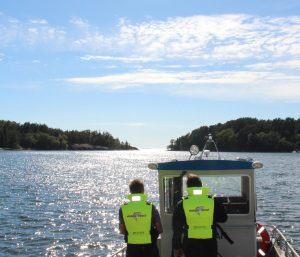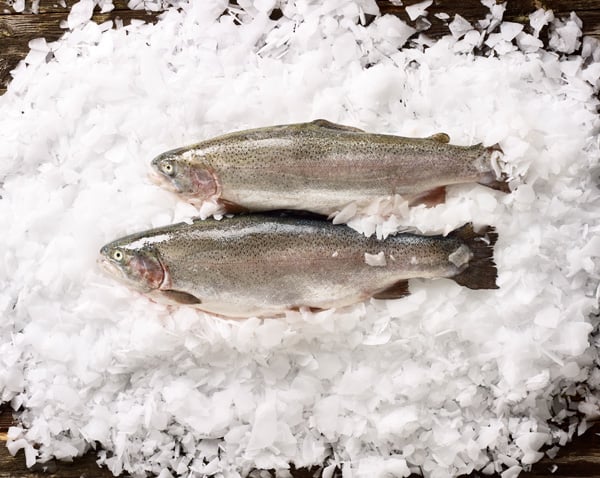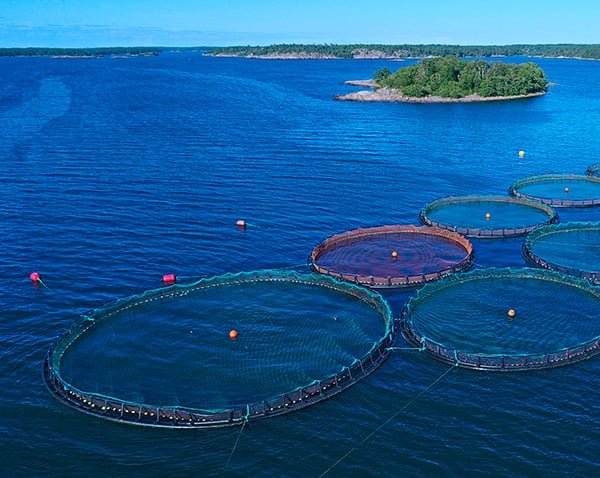Environmental policy
For our company, taking care of the environment is a basic principle in all areas of our operations. It is the basis for all our strategic decisions in planning and developing our operations, both in the short and long term. This also applies to all everyday work routines at our farming facilities and in the further processing of fish. Environmental matters are also taken into account in all cooperation agreements relating to procurement, purchases and maintenance and repair work.
Our farming operations are based on choosing a good place for a fish farm and determining the right quantity of fish to raise with regard to the carrying capacity and resilience of the water area in question. Other important factors include choosing high-quality feed, its appropriate use, and efficient, well-managed feeding techniques. The feed must contain high-quality ingredients with optimal digestibility and ensured traceability. All these areas require experienced and skilled personnel.
We try to place all our farming facilities in water areas with good water quality and a high turnover rate. In order to avoid conflicts of interest with other users and parties, farming facilities must be located in places that are otherwise used as minimally as possible. This allows us to reduce possible environmental impacts as well as ensure excellent farming conditions for fish and good farming results.
Our operations are based on licences that are granted by the authorities, based on the environmental and fishery legislation currently in force. The licensing process is quite long and thorough. It requires us to have solid knowledge and experience as well as conduct extensive environmental assessments both before operations are launched and during them. Fish-farming licences are usually granted on a fixed-term basis and renewed approximately every 10 years. Some fish-farming licences are valid indefinitely. All licences include detailed licence terms regarding the scope and location of the operations, technical solutions, feed and feeding and treatment of dead fish and other waste, as well as internal control and obligatory monitoring.




